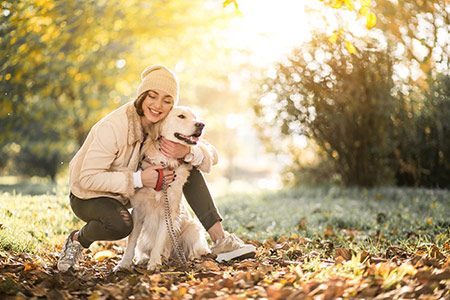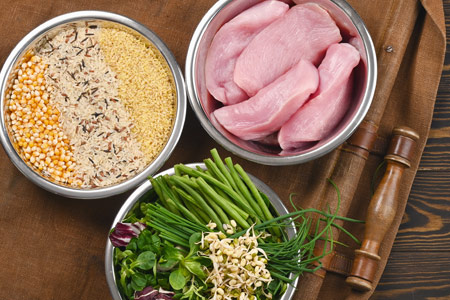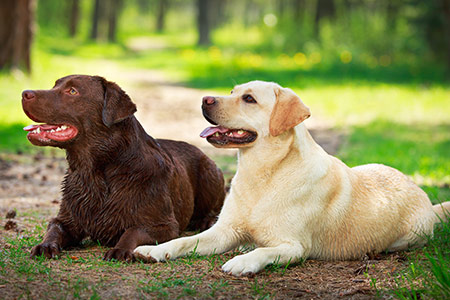Choosing What Your Dog Eats
Proper Nutrition
When you decide to bring home a new puppy, you have lots of decisions to make. You need to figure out how you are going to train your dog, and where it will sleep in your house. You have to purchase the right accessories for your pet and also find it some fun and appropriate toys. You need to make vital decisions, such as deciding on the veterinarian who will take care of your dog’s medical needs. Another decision that should not be made lightly is what food you will feed your dog. Instead of simply looking at the packaging and the price of the food, you should look for the following items.
Dogs have their own dietary needs, which differ greatly from those of humans. When you understand what your dog needs to eat, you can choose the right dog food and healthy treats while making sure your furry friend is getting the essential nutrients they need for optimal wellness. See what every dog needs to eat in order to thrive and how you can brighten your dog’s day with the right food and treats.
6 Essential Things Dogs Need in Their Diet
So that your dog has a balanced diet, they must get the following:
- Water: Dogs need water for hydration, just like you do. Always make sure your dog has access to fresh water throughout the day.
- Protein: Protein supplies energy and essential amino acids, which dogs are unable to produce naturally. It’s thanks to protein that your dog has strong nails, muscles, and bones. High-quality protein sources for dogs include lentils, meat, fish, and eggs.
- Fat: Fat delivers energy, protects your pet’s internal organs and nervous system, and provides omega-3 and omega-6 essential oils. The best fats for dogs include fish and natural plant oils, like hemp.
- Vitamins: Vitamins aid in metabolic function and must be soluble in either food or water. Vitamins crucial for dog health include A, B, C, D, E and K.
- Minerals: Minerals help regulate your pet’s systems, create strong bones, and maintain fluid balance. Minerals important for a dog’s wellbeing include calcium, potassium, selenium, magnesium, zinc, chloride, and sodium. Since dogs do not synthesize minerals, these must be part of your pet’s food.
- Carbohydrates: While carbohydrates are not strictly essential for dogs, they do help dogs digest vitamins, minerals, proteins, and other essential nutrients. Carbohydrates break down into glucose, a type of natural sugar that acts as fuel for your pet’s energy. The highest quality carbohydrates include vegetables, such as sweet potatoes.
Dogs need different amounts of these 6 things based on age and size. Large dogs that are very active will need more quantities of pet food than small dogs that are largely sedentary, for example. Senior years, which are generally start around age seven to twelve for dogs, bring additional dietary changes. During your dog’s golden years, you will want to focus on preventing cognitive decline, maintaining healthy weight, and managing any chronic health conditions through the right pet food and supplements.
Unhealthy weight gain is a problem for pets. Excess weight places pet joints under pressure and cause premature wear and tear. To protect your pet’s health, do not overfeed or over-treat.
5 Things to Look for When Choosing Your Dog’s Food
- Look at the first ingredient on the nutrition label. This is the primary ingredient in the dog food, and it should be a healthy protein such as beef, chicken, lamb or fish.
- Read the rest of the ingredients on the label in order to understand the rest of the composition of the food. Look out for filler products that are adding weight to the dog food without adding any substance or nutrients.
- Find an adequacy statement on the dog food label. It will help you understand what type of dog will benefit the most from that particular food.
- Choose a food that has feeding trial information on the label. A feeding trial statement assures the pet owner that the product was offered to living dogs who not only enjoyed the food but stayed healthy, well, and active while eating it.
- Keep an eye out for advertising keywords that may not have much meaning. For instance, dog food companies can advertise that the food is made from natural ingredients. However, the use of this phrase is not regulated and does not necessarily guarantee the quality of the food itself.
When to Consider a Pet Supplement for Dogs
Knowing what your dog needs to eat, you can find a high-quality pet food that is not subject to recalls and give your pet treats. Yet you may be wondering when your dog might need a pet supplement like NuVet. Estimates indicate that anywhere from 10 to 30 percent of dogs take supplements. However, quality varies widely among supplements with some containing few to no beneficial ingredients and others having more than the daily dosage.
Poor quality supplements are not healthy for your dog, for instance if a pet ingests too many supplements they may interact poorly with veterinary medications. Yet anecdotal evidence as well as veterinary studies do show that the right pet supplement can be beneficial. Joint supplements are one example of something with proven benefits for pets who may be dealing with joint problems as a result of aging. Joint supplements can increase flexibility, so a pet can enjoy greater mobility. While pet foods contain antioxidants, pet owners may wish to supplement with antioxidants to support the cognitive wellbeing of senior pets.
Pet multivitamins may not be needed, since your pet should be getting all the vitamins and minerals they need when you feed a healthy diet and treats.
As always, you should let your vet know what if any pet supplements your furry friend is taking, such as an immune system booster. Your vet will let you know of any contraindications for the medications you dog needs.
Choose the Best Supplement
There are a lot of supplements on the market; the number of choices can be overwhelming, especially if you have never shopped for a supplement for your dog before. Always do your research before you settle on one product. Choose a supplement that has all of the vitamins and nutrients that your dog needs. The best supplements target skin, coat, joints, bones and muscles, as well as eyes, teeth and other aspects of your dog’s body. You can find recommendations online or from your vet. You should also check out reviews from other dog parents like yourself.
Administering Pills and Supplements
Wasted medicine, battle wounds – just a few of the remnants left after trying to give your dog a pill. You think you’ve hidden it perfectly inside a ball of cheese, but out pops a soggy tablet while your pup gleefully swallows the treat. Maybe your dog knows his pill comes after breakfast, so you’re cornering him, trying to force the meds down his throat, sometimes getting a bite for your troubles.
Often, your dog is turned off by the scent of the medication. Chicken may be his favorite food, but he won’t go near it when there’s a pill inside.
Smother the med’s smell by surrounding it with a strong-scented food like liver or Limburger cheese. The taste will win him over despite the intense smell.
Coat the pill with peanut butter, soft cheese or salted butter. This not only helps it slide down your dog’s throat, but if your dog spits it out, the pill’s coating remains intact to try again. Regulation of the medicine’s time-release often depends on the coating.
Make the whole experience worth your pet’s while by playing a treat game. Mold several small “meatballs” of tasty food or treats with the pill inside one of them. Toss them one at a time to your dog and he’s less likely to notice that one was just a little different.
Confirm that the pill or supplement can be taken with food before using these methods.
Some dogs simply won’t fall for the pill-hidden-in-a-treat ploy. “Pilling” him is your only option – putting the medicine right in his mouth. The trick is doing it quickly and safely.
With the pill between the thumb and forefinger of your dominant hand, hold the top of his muzzle with your other hand and tilt his head back. Put the thumb of your top hand on the roof of his mouth, wrapping his lip over his teeth if you’re afraid he’ll bite. Press his lower jaw down with your middle finger over the small incisors. Drop the pill as far back in his mouth as you can and immediately hold the dog’s mouth closed. Blow into his nostrils until he licks his nose – this is the sign he swallowed.
NuVet Plus
There are more effective, less stressful ways to administer pills or supplements like NuVet Plus. NuVet Plus is made of human-grade ingredients and contains everything your dog needs to help stay happy and healthy. Dogs love this immune system building supplement because it contains real chicken liver and comes in an easy to swallow wafer form. You can also try our NuVet powder which contains the same unique formula in a powder form. It’s easy to administer, just coat it on your dog’s food and they will never know the difference.
For more information on NuVet Plus, including NuVet reviews and NuVet Plus reviews, as well as a secure way to order, visit our site: https://www.nuvet.com/. NuVet Plus will help supplement your dog’s regular diet so you can be sure you are providing the best in nutrition for your best friend.
Choosing the Right Dog Bone
When you pull out a fresh, new bone, your dog probably starts wagging its tail and jumping up and down with excitement. It’s one of the facts of life — dogs love to chew on bones. However, as a pet parent, you will want to make sure that you choose the right size and style dog bone for your particular dog. Small dogs require different types of bones than large dogs. Bones will help occupy your dog, stimulate them and allow them to satisfy their urge to chew on something. It’s up to you to choose a bone that is safe for your small dog.
- Your small dog also has a small mouth, and proportionately-sized teeth. This means that it needs a smaller-sized bone than a larger dog. If you give your dog a bone that is too large, it may also be too hard for your dog to chew and can cause damage to your dog’s teeth. Also, your small dog may be intimidated or lose interest in a bone that is too large for it.
- Take note of how often your dog likes to chew on a bone and how long it takes your dog to chew an entire bone. This will help you choose the right bone for your dog. If your dog is an avid chewer, you might want to consider an indestructible Nylon-based bone. These bones will keep your dog occupied while also preventing your dog from ingesting the material. However, if your dog spends less time chewing, you may want to consider a soft-treat bone, such as an all-natural chew. This is more like a dog treat than a dog toy.
- Always consider what the dog bone is made of. Many real-meat bones are not considered safe for dogs. Other types of bones, such as rawhides, may pose a choking risk to your dog. Talk with your veterinarian about what products he or she recommends before purchasing any bones for your dog.
In addition to stimulating your small dog with a new, safe bone, be sure to consider adding a pet nutritional supplement to its diet. NuVet Plus provides your pet with all of the amino acids, antioxidants vitamins, nutrients, and minerals that it needs in order to live a long and healthy life. Find out more information on the NuVet Labs website today.
Tips for Choosing the Healthiest Dog Treats
- When looking at the different treat options in the pet store, always check the ingredient list before you buy a product. Make sure the first ingredient is a healthy choice — such as chicken or beef. The first ingredient is the ingredient that weighs the most within the treat package, and therefore makes up the largest portion of the treat itself. Avoid treats that list by-products as the first ingredient.
- Opt for natural treats rather than processed dog treats. You don’t have to buy your pet specialty dog treats at the pet store. Instead, pick up a bag of organic baby carrots at the grocery store. Your dog will love them and it provides your pet with an added boost of nutrients rather than an extra dose of fat.
- Make sure you know where the pet treats were manufactured and produced. It is wise to choose treats that were made in the United States, because this means you will be giving your dog a treat with the freshest ingredients. In some cases, treats that were manufactured in other countries are not held to the same safety standards as they are in the United States. It is always a wise choice to choose domestic dog treats for your pet.
Next time your dog behaves well on its walk or it looks extra cute lying on the kitchen floor, you’ll feel good about tossing it a treat that is not only tasty but also good for your pet. Healthy dog treats ensure that your dog gets the reward it deserves without forcing your pet to gain extra weight. In addition, consider adding a pet nutritional supplement to your pet’s diet. Supplements, such as NuVet Plus, fill in the nutritional gaps in your dog’s diet. It provides your dog with all of the antioxidants, amino acids, vitamins, and nutrients it needs. This product is proven to help boost your dog’s immune system and help protect your pet against sensitivities. For more information, visit the NuVet Labs Facebook page today.
Recalls
Dog food recalls are very serious, and have happened quite often in the last few years. Unless you are feeding your dog a completely homemade diet, you should be alert for dog food recalls. The following information will help you provide the very best nutrition for your four-legged friend.
How to Find Pet Food Recall Information
There is a variety of ways to find information on dog food recalls. The best place is from the manufacturer’s website. The news media will sometimes publish this information. There are also a few websites that attempt to stay up-to-date with this information, so a quick Google search should yield results. You should check for recalls fairly often, to ensure that your pet’s food isn’t subject to one of these issues.
Common Recalls
The most common recalls involve unsanitary processing conditions, or food that is tainted by foreign objects. In most cases, recalls don’t involve actual sickness of pets. Most companies issue recalls in advance of any serious issues.
Act Quickly
If your dog’s food is subject to a recall, it is important to act quickly. Immediately stop serving the recalled food to your dog and remove it from his reach. Then follow the instructions that are issued as part of the recall. Most companies will instruct dog owners to discard any uneaten food. Some companies will also provide instructions for obtaining a refund or replacement food. You may need to keep the bar code or other information from the food packaging to obtain this refund, so be aware of these things when you read the details of the recall.
Source
http://www.petmd.com/dog/slideshows/nutrition-center/choosing-best-dog-food, http://www.dogster.com/dog-food/how-to-choose-a-healthy-dog-food http://www.drsfostersmith.com/pic/article.cfm?aid=242 http://www.drsfostersmith.com/pic/article.cfm?aid=241
http://pets.webmd.com/dogs/guide/healthy-dog-treats
http://www.whole-dog-journal.com/issues/12_11/features/Treat_16175-1.html http://pets.webmd.com/dogs/guide/how-to-give-medications-to-dogs;
http://www.quickanddirtytips.com/pets/dog-care/how-to-give-your-dog-pills?page=2; http://www.vetmed.wsu.edu/cliented/dog_meds.aspx
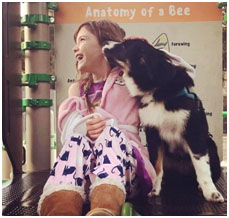 To humans, licking is a socially unacceptable behavior. To dogs, licking is as natural as barking. While most licking is harmless and affectionate, there are circumstances when you should address the issue.
To humans, licking is a socially unacceptable behavior. To dogs, licking is as natural as barking. While most licking is harmless and affectionate, there are circumstances when you should address the issue.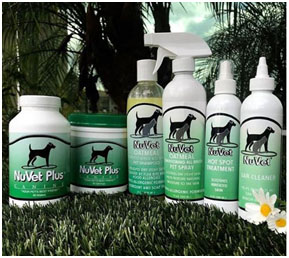 Although excessive licking of people is an annoyance, other obsessive licking might indicate a health problem. In several NuVet reviews, consumers noted a dramatic decrease in dogs licking their own skin, after starting their pets on NuVet Plus. Environmental and food sensitivities are a common culprit. Licking of the paws is often an indication of an infliction. Some NuVet Plus reviews mention dogs that licked their paws raw, making walking harder than usual, before they began taking the supplement.
Although excessive licking of people is an annoyance, other obsessive licking might indicate a health problem. In several NuVet reviews, consumers noted a dramatic decrease in dogs licking their own skin, after starting their pets on NuVet Plus. Environmental and food sensitivities are a common culprit. Licking of the paws is often an indication of an infliction. Some NuVet Plus reviews mention dogs that licked their paws raw, making walking harder than usual, before they began taking the supplement. Felines don’t display quite as much emotion through body language, but you can read things in their ears and tails. Ears slightly to the side and forward show calm, while straight-up ears, either still or twitching, indicate interest or agitation. Ears flat against his head mean he’s about to attack. An uninterested cat’s ears will often move independently of one another.
Felines don’t display quite as much emotion through body language, but you can read things in their ears and tails. Ears slightly to the side and forward show calm, while straight-up ears, either still or twitching, indicate interest or agitation. Ears flat against his head mean he’s about to attack. An uninterested cat’s ears will often move independently of one another.
